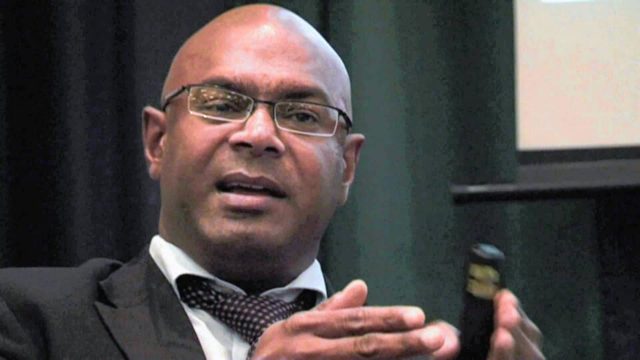South Africa has a noose around its neck waiting for the Financial Action Task Force to decide whether to grey-list the country, following the completion of a year-long observation period, with D-Day in February.
KUBEN Naidoo, the deputy governor of the SA Reserve Bank (SARB), said yesterday he believed South Africa would be grey-listed next year with up to a 52% likelihood, despite the Treasury’s intense efforts to avoid this.
South Africa has a noose around its neck waiting for the Financial Action Task Force (FATF) to decide whether to grey-list the country, following the completion of a year-long observation period, with D-Day in February.
This followed the FATF identifying serious weaknesses in South Africa’s anti-money laundering and combating the financing of terrorism framework, in which the country scored a very poor ratings assessment on technical compliance.
If grey-listng comes to pass, financial firms around the world, including banks, would be required to apply enhanced due diligence to any South African client, a process more invasive and extensive, to assess the source of funds and probity of clients.
At a SARB media lunch on Tuesday, Naidoo said the report found that South Africa was deficient in 11 areas.
Some of the areas looked at the prudential supervision of the banks and insurance companies, and the supervision of the national payment system.
“We’re pretty confident that we as the Reserve Bank can deal conclusively with three of those four,” he said, adding it had completely complied with the federal requirements on those.
But the fourth one related to beneficial ownership in the banking sector. There had been some legislative amendments to that.
“Whether we can still persuade the fact that we have done enough within the windows for observation, which ends in September or October, I think is a moot point. We don’t control all 11,” said Naidoo.
Some of the issues the FATF highlighted dealt with recommendations for the estate agents’ board, the diamond board, the retirement board, the Hawks and the National Prosecuting Authority and the Financial Intelligence Centre.
Naidoo said South Africa had already significantly reduced the likelihood of the grey-listing.
“So if I thought six months ago, there was a 60% to 70% chance to be grey-listed, I think the chances of us being now being grey-listed are probably between 51% and 52% or significantly less than that. But I still think on balance we probably will be grey-listed,” he said.
He said there was an intense effort led by the Treasury, which should help South Africa get out of grey-listing territory and mitigate the negative impact of being grey-listed.
“I don’t think we will fully remediate all 11 outcomes, but we will have gone a significant way,” Naidoo said.
Last month, a study commissioned by the Business Leadership South Africa concluded that South Africa was facing an 85% probability of being grey-listed by the FATF if it did not strengthen required mechanisms against money laundering and terrorist financing.
And tabling his Medium-Term Budget Policy Statement (MTBPS) in Parliament last week, Finance Minister Enoch Godongwana said the government was doing everything necessary to prevent the grey-listing.
Godongwana said the February 2023 Budget would have additional allocations to the budgets of the National Prosecuting Authority (NPA), the Special Investigating Unit, the Financial Intelligence Centre and the SA Revenue Service (Sars).
He said these resources would help the institutions identify sophisticated financial crimes, prosecute offenders and recover money and assets that were the proceeds of fraud and corruption.
– BUSINESS REPORT








